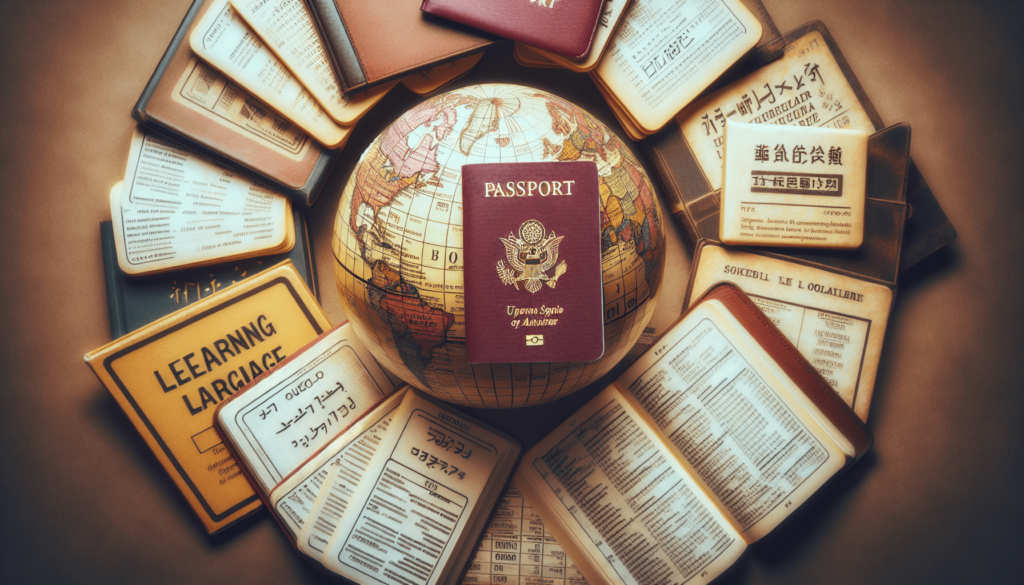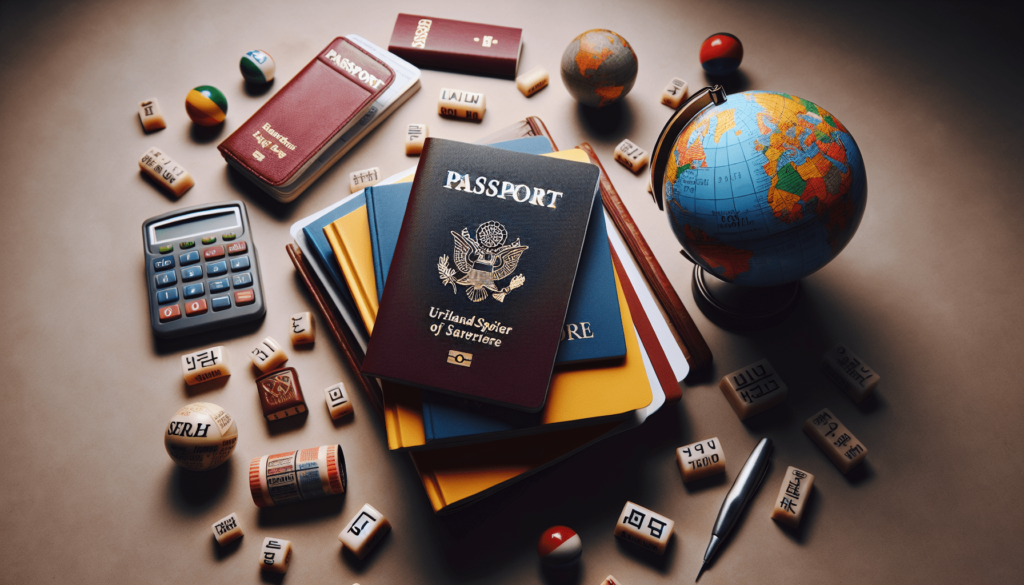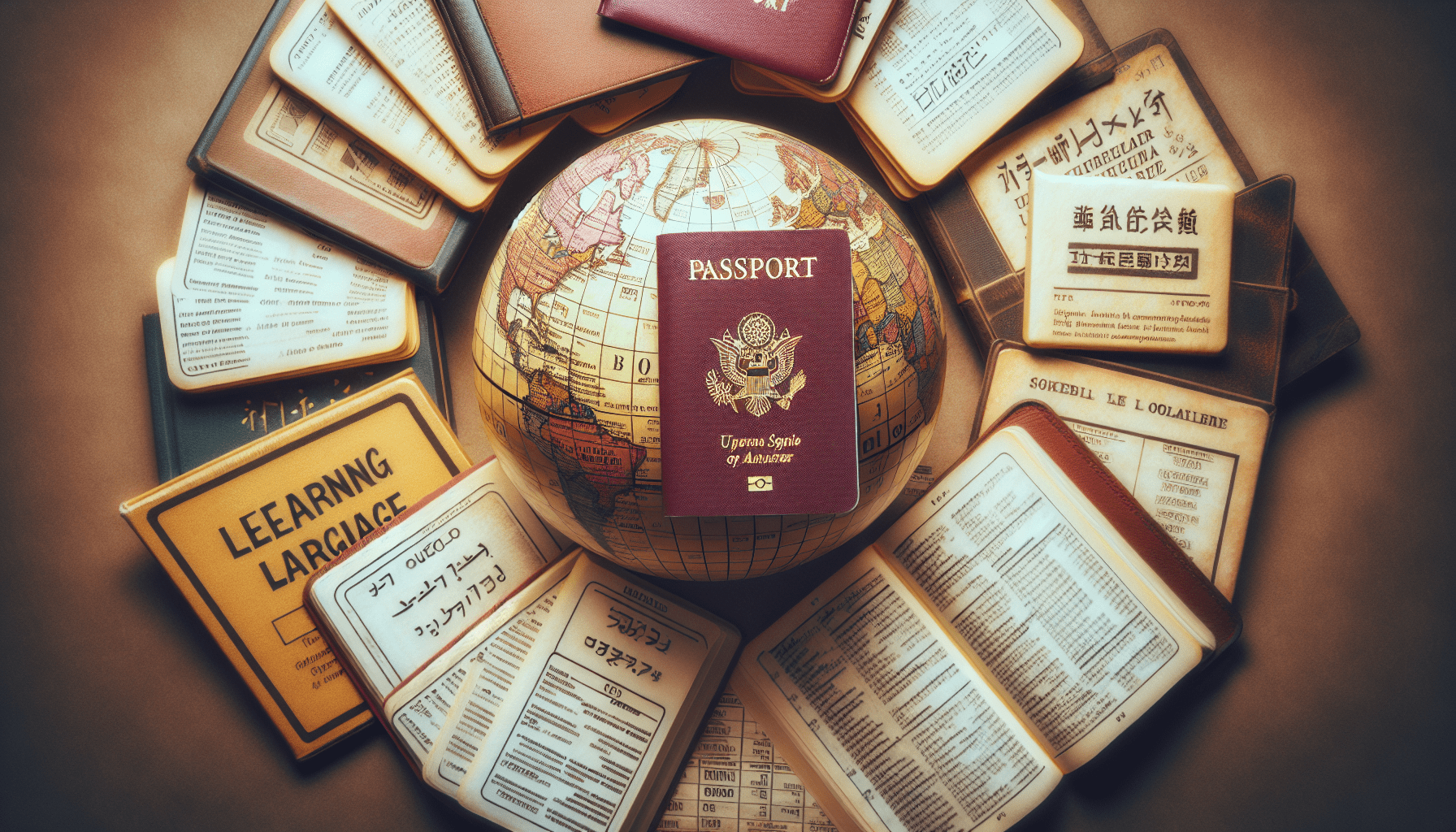The Benefits of Traveling for Language Learning
Traveling provides a unique opportunity to immerse yourself in a different culture and language. As you navigate through unfamiliar places, interact with locals, and engage in everyday conversations, you have the chance to practice and improve your language skills in real-time. This hands-on approach to learning can significantly enhance your understanding and proficiency in a foreign language.
Cultural Immersion
When you travel to a foreign country, you are exposed to the local customs, traditions, and way of life. By immersing yourself in the culture, you gain a deeper understanding of the language and its context. You have the chance to observe native speakers in their natural environment, allowing you to pick up on nuances, slang, and colloquialisms that you might not encounter in a classroom setting.
Practical Application
Traveling provides you with countless opportunities to practice your language skills in practical, real-life situations. Whether you are ordering food at a restaurant, asking for directions, or bargaining at a local market, each interaction serves as a chance to apply what you have learned in a meaningful way. Being able to communicate effectively in these situations can boost your confidence and fluency in the language.

Tips for Maximizing Language Learning During Travel
To make the most of your language learning experience while traveling, consider incorporating the following tips into your itinerary.
Take Language Classes
Before you embark on your journey, consider enrolling in a language course or workshop to brush up on your skills. This will provide you with a solid foundation to build upon during your travels. Additionally, participating in language classes while abroad can further enhance your proficiency and understanding of the language.
Practice with Locals
Don’t be shy about striking up conversations with locals during your travels. Most people are willing to help you practice your language skills and are often appreciative of your efforts to communicate in their native tongue. Engaging with native speakers is a great way to improve your pronunciation, vocabulary, and overall fluency.
Keep a Travel Journal
Maintaining a travel journal can be a valuable tool for language learning. Write down new words and phrases that you learn along the way, as well as any cultural insights or experiences you want to remember. Reviewing your journal regularly can help reinforce your learning and expand your language skills.
Use Language Learning Apps
There are several language learning apps available that can help you practice and improve your language skills on the go. These apps offer interactive lessons, vocabulary drills, and pronunciation exercises that are designed to enhance your language proficiency. Consider downloading a few of these apps to supplement your learning while traveling.
The Role of Immersion Programs in Language Learning
Immersion programs are structured language learning experiences that typically involve living with a host family, attending language classes, and engaging in cultural activities. These programs offer a comprehensive approach to language learning by immersing you in the language and culture of a foreign country.
Benefits of Immersion Programs
One of the main benefits of immersion programs is the opportunity to practice your language skills in real-life situations. By living and interacting with native speakers on a daily basis, you are forced to communicate in the target language, which can significantly improve your fluency and confidence. Additionally, immersion programs provide a supportive environment where you can receive feedback and guidance from language instructors and host families.
Types of Immersion Programs
There are several types of immersion programs available, ranging from short-term language courses to semester-long study abroad programs. Some programs also offer volunteer opportunities, internships, and cultural exchange activities to further enhance your language learning experience. Whether you are looking to improve your language skills for personal or professional reasons, there is likely an immersion program that suits your needs and interests.
Overcoming Language Barriers While Traveling
Language barriers can be a common challenge when traveling to a foreign country, especially if you are not fluent in the local language. However, there are several strategies you can use to overcome these barriers and communicate effectively during your travels.
Learn Key Phrases
Before you travel, take the time to learn a few key phrases in the local language, such as greetings, numbers, and common expressions. This will help you navigate basic interactions and show locals that you are making an effort to communicate in their language.
Use Translation Apps
Translation apps can be a useful tool for overcoming language barriers while traveling. These apps allow you to quickly translate spoken or written text from one language to another, making it easier to communicate with locals, read signs, and navigate unfamiliar places. Consider downloading a translation app that works offline to ensure you have access to translations even without an internet connection.
Non-Verbal Communication
When words fail, non-verbal communication can be a powerful alternative for conveying your message. Simple gestures, facial expressions, and body language can help you communicate basic needs and emotions without speaking the local language. Pay attention to how locals express themselves non-verbally and use similar cues to enhance your communication.
The Impact of Travel on Language Acquisition
Traveling can have a profound impact on your language acquisition by exposing you to authentic language use and cultural context. The hands-on nature of traveling allows you to practice and improve your language skills in real-world settings, which can lead to faster and more effective language learning.
Accelerated Learning
By immersing yourself in a foreign language environment, you are more likely to accelerate your learning and retention of the language. The constant exposure to native speakers, authentic conversations, and cultural experiences can help reinforce your understanding and solidify your language skills.
Cultural Understanding
Traveling allows you to develop a deeper appreciation and understanding of the culture behind the language. As you interact with locals, explore historical sites, and partake in cultural traditions, you gain insights into the social, political, and historical influences that shape the language and its use. This cultural awareness can enrich your language learning experience and provide context for your language skills.

Conclusion
In conclusion, traveling can be a powerful tool for enhancing language learning by providing real-world opportunities to practice and improve your language skills. Through cultural immersion, practical application, and exposure to authentic language use, you can accelerate your language acquisition and develop a deeper understanding of the language and its context. By incorporating language learning into your travels, you can gain valuable skills, experiences, and insights that will enrich your language proficiency and cultural awareness. So pack your bags, prepare your language skills, and get ready for an unforgettable language learning journey through travel.

